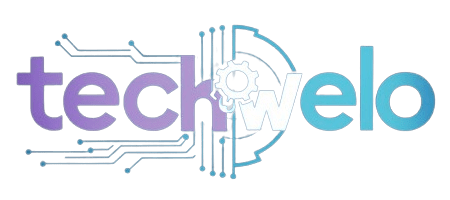Artificial Intelligence (AI) is shaping the future, from healthcare to finance and everything in between. However, with great power comes great responsibility. AI can potentially transform industries, but it also raises ethical concerns bias, transparency, privacy, and security. That’s where Google Keeper AI Standards Test comes in. This framework ensures AI development aligns with ethical and responsible guidelines. But what does it involve, and why is it important? Let’s break it down.
What is Google Keeper AI Standards Test?
Google introduced the Keeper AI Standards Test as a benchmark for ensuring responsible AI development. It serves as a framework to assess AI applications against ethical guidelines, ensuring they are fair, transparent, and secure.
Why AI Needs Ethical Standards
If left unchecked, AI can reinforce biases, manipulate information, and compromise user security. Here’s why ethical AI is crucial:
- Avoiding biases and discrimination: AI models should not favour specific demographics.
- Ensuring transparency: Users should understand how AI decisions are made.
- Maintaining public trust: Ethical AI fosters consumer confidence.
Core Principles of the Keeper AI Standards Test
Fairness and Bias Mitigation
- AI models undergo rigorous checks to prevent discrimination.
- Algorithms are trained with diverse datasets to promote inclusivity.
Transparency and Explainability
- AI developers must provide clear insights into how models make decisions.
- Google encourages open-source efforts to enhance clarity in AI processes.
Privacy and Security
- AI systems must protect user data.
- Encryption and secure storage practices are mandatory.
Accountability and Governance
- Human oversight is essential in AI decision-making.
- Regular audits ensure AI systems comply with ethical standards.
Sustainability and Long-term Impact
- AI should contribute to environmental and societal well-being.
- Energy-efficient AI solutions are prioritized.
How Google Keeper AI Standards Test Works
The test involves a multi-step evaluation process:
- Pre-deployment Testing: Ensuring AI systems align with ethical standards.
- Bias and Fairness Analysis: Identifying and mitigating any algorithmic biases.
- Transparency Reports: Developers provide detailed reports on AI decision-making.
- Security Compliance Checks: Ensuring data protection protocols are in place.
- Ongoing Audits: Continuous monitoring to maintain compliance.
Comparison With Other AI Ethics Frameworks
Google is not alone in setting AI standards. Other organizations have similar initiatives:
- OpenAI’s approach: Focuses on alignment with human values.
- Microsoft’s Responsible AI: Prioritizes transparency and accountability.
- Global regulations: AI ethics laws vary across different countries.
Challenges in Implementing AI Ethics Standards
 Even with strict guidelines, implementing ethical AI is not without challenges:
Even with strict guidelines, implementing ethical AI is not without challenges:
- Balancing innovation and regulation: Overregulation can slow down AI progress.
- Global compliance issues: Different countries have different ethical standards.
- Continuous monitoring: AI is evolving rapidly and requiring ongoing oversight.
The Future of Ethical AI Development
AI governance will continue to evolve with the following:
- Stronger government regulations.
- Increased corporate responsibility.
- Greater consumer awareness of AI ethics.
Comparing Keeper AI Test with Other AI Ethical Frameworks
How does Google’s test compare to others, such as the EU AI Act or IBM’s AI Ethics Guidelines? While similar in purpose, Google’s standards emphasize scalability and real-world implementation.
Potential Challenges in Implementing AI Standards
Challenges include:
- Balancing AI accuracy and bias reduction
- Enforcing accountability in large-scale AI projects
- Keeping up with evolving AI threats
The Future of AI and Google’s Role in Responsible Development
AI is evolving rapidly. Google Keeper AI Standards Test will likely adapt to new challenges, ensuring AI remains a tool for good rather than harm.
How Companies Can Adopt Similar AI Testing Standards
Other companies can implement these best practices by following Google’s framework, conducting AI audits, and prioritizing ethical AI development.
Conclusion
Google Keeper AI Standards Test sets an essential precedent for responsible AI development. As AI advances, ethical guidelines ensure that these innovations benefit humanity rather than harm it. The future of AI depends on frameworks like this to maintain trust and fairness.














